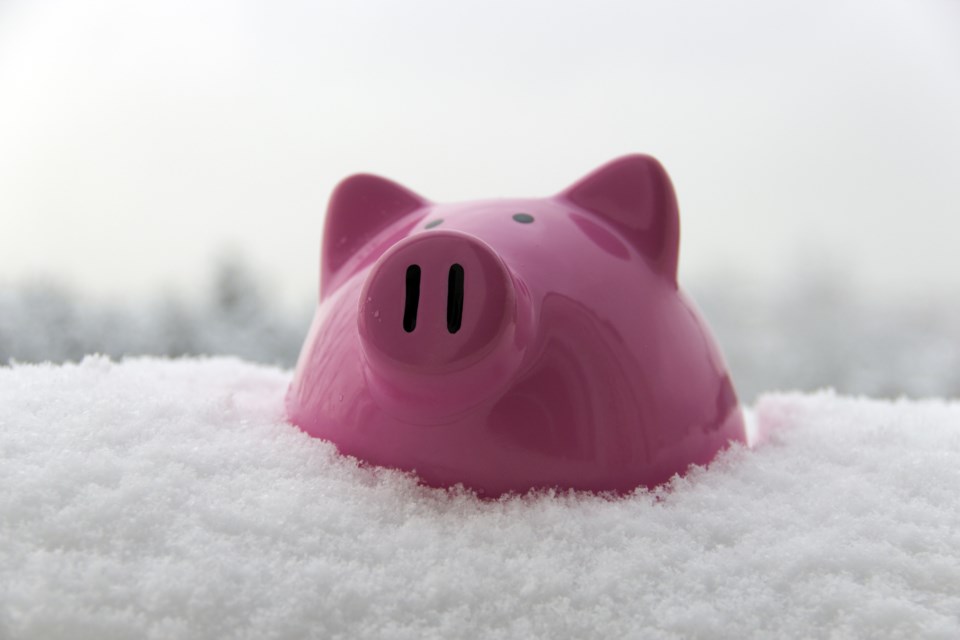From boots to coats and even new tires, winter expenses can pile up.
Alyssa Davies, a personal finance blogger and author of The 100-Day Financial Goal Journal, tells Global News the best way to avoid overspending is to track your spending.
“A lot of financial professionals will advise you to track your spending in an aggressive way,” she said.
“You don’t want to force yourself into a corner, so if keeping piles of receipts isn’t going to reduce your stress load, consider trying a budgeting app that does a lot of the heavy lifting for you.”
And setting a budget isn’t about giving up on all on your shopping list, either. Davies says it’s about learning how to restrict spending.
“This is particularly important when winter comes around because there are a lot of one-time expenses that we can’t always predict,” she continued.
“It’s smart to have a small emergency fund to cover those costs that pop out of nowhere… start by putting $10 to $20 a week into a high-interest savings account and use that money for the times you can’t afford unexpected expenses. This way, your budget won’t be impacted too greatly.”
Does winter mean more spending?
Personal finance expert Preet Banerjee tells Global News that for some, winter means trying to fit in everything.
“You have to lay out your priorities,” he said.
“Money is all about trade-offs. There may be some things on that list you have to give up in order to have less stress (both physical and financial).”
Priority items should include things for safety (think winter tires and warm clothing), but before you make a purchase, see if you really need to opt for new ones.
“Winter tires should last a number of winters,” he continued. “Unless you have kids who’ve outgrown their coats, you can layer up to keep warm. But you can also get creative.”
For some, winter activities can also become expensive.
“Why buy new sports equipment if you’re only going to use it once or twice? See if you have friends or family with equipment you can borrow for a day.”
Davies adds winter spending comes down to lifestyle, especially around the holidays.
“Some people have a lot of holiday events that are just as costly,” she said. “It’s important to be aware of your own financial habits so that you can prepare in advance for the more expensive parts of your year.”
And even if you didn’t set a budget this year, aim for one in 2020.
“If you spend $500 on Christmas gifts, that means you could save $50 a month for 10 months and be ready to purchase presents in November of the following year.”
Setting up financial goals
Many head into the New Year with lofty goals that aren’t as practical as they hope, Davies said. “Be sure to take a good look at your financial situation and become aware of how much money is coming in and going out each month.”
From there, she said, set a budget that allows for savings or debt repayment goals that won’t stretch you too thin.
Banerjee says don’t wait till December to set up your goals — do it now.
“There’s no such thing as too early,” he said. “In fact, the earlier you start the easier it will be.
“For example, let’s say you end up spending $1,000 this holiday season over and above your regular monthly expenses. If you set up a savings plan now for next year, you’ll only have to set aside $20 per week into a separate savings account.”
What to buy this winter
Winter is all about investments. Yes, new boots and coats seem like a good idea every winter, but avoid spending money on trendy items, Davies said.
“Go for more practical winter clothing, because this is Canada, and we’re too cold to care if your boots are fashionable,” she said.
“These costs are unavoidable, so just ensure that you’re being realistic as to what you can afford. If you want good-quality material but can’t afford the splurge, try thrifting.”
But Banerjee has a different take on winter spending.
“If you’re buying something that is deeply discounted but you otherwise were not going to buy, you didn’t actually save money, you spent more,” he explained.
“And second, buying ‘off season’ can make a lot of sense. Retailers clearing out last summer’s inventory to make room for next year can lead to good deals.”
- Global News
